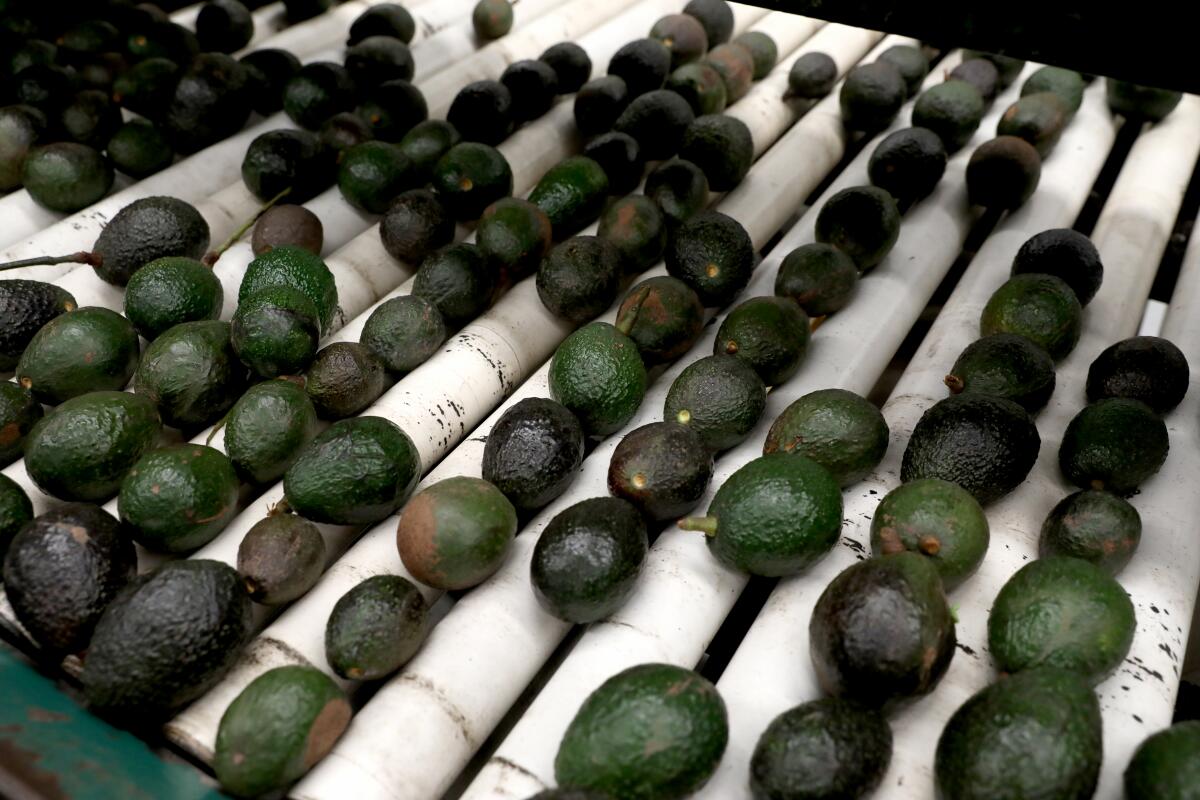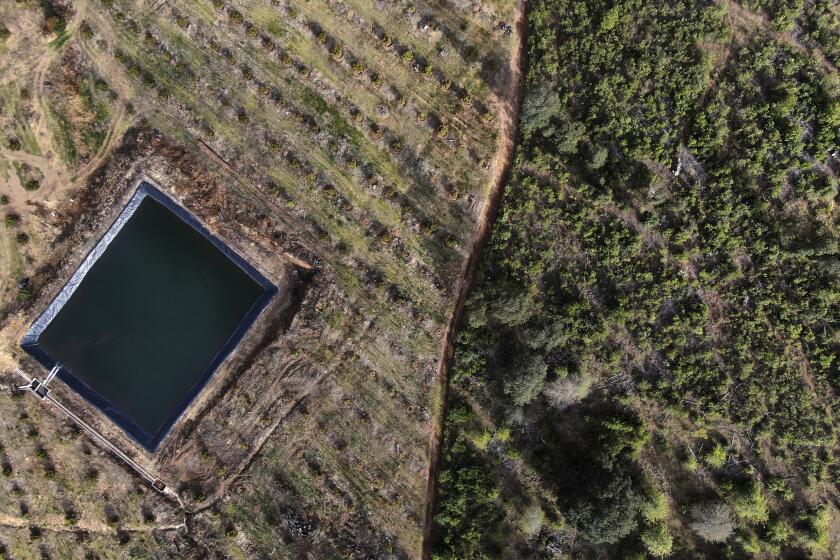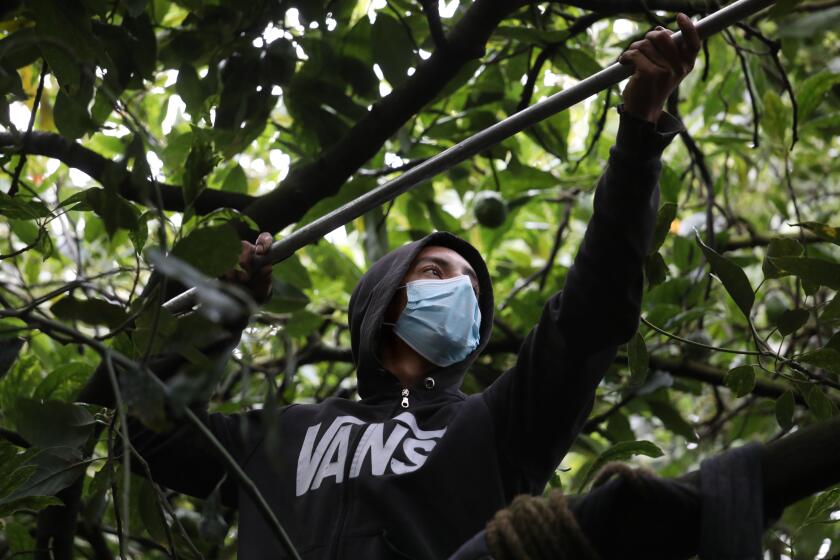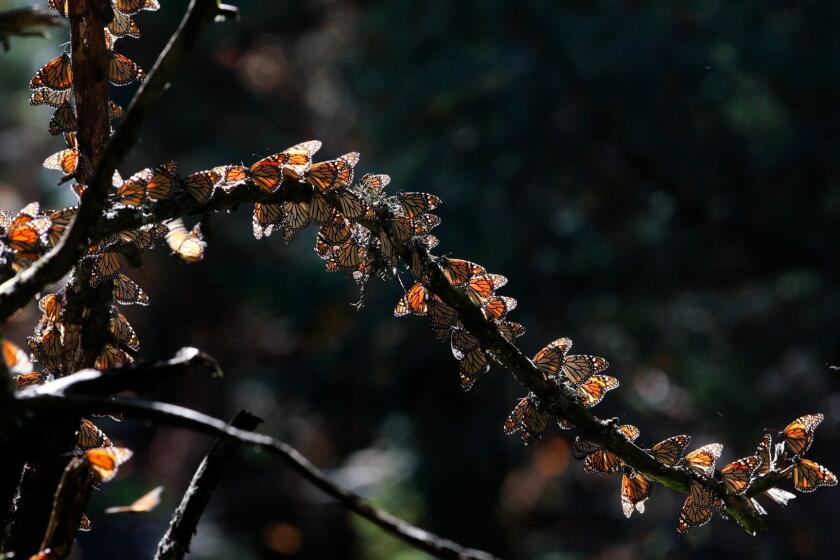Opinion: Do you love avocados? Do you know what that’s doing to Mexico?

Los Angeles is the avocado capital of the United States. Well over 140 million avocados were sold here last year, far more than in any other metropolitan area in the country. And while I love guacamole and avocado toast as much as the next Angeleno, this consumption is coming at a terrible cost that makes me feel pretty conflicted about how much we consume.
Over the last year, I visited more than 25 communities in Michoacán and Jalisco, two mountainous states in western Mexico that supply 4 out of 5 avocados sold in the United States. My research there found that expanding avocado production to meet U.S. demand is fueling widespread deforestation and water scarcity.
Regular citizens have taken the fight against illegal logging into their own hands in the pine-covered mountains of western Mexico.
The destruction of the forests to install avocado orchards was plainly visible from the region’s main highways. So was the massive amount of water that producers are using for irrigation: private reservoirs, some as big as two NFL football fields, are common sights in the two drought-prone states, where many communities are confronting water shortages.
But just because the environmental degradation was obvious didn’t mean it was easy to talk about. Many residents were too terrified to do so. Their fear is well founded. Efforts by Indigenous communities and other residents to protect forests and water from avocado production have repeatedly been met with threats and violence.
The winter supermarket avocado is a symbol of our need and our ability to get everything we want all the time – and the consequences. Costs in this case are paid in the form of deadly violence in Mexico.
Despite these risks, many people in Michoacán and Jalisco continue to document, denounce and resist the destruction, including Indigenous leaders, environmentalists, journalists and academics. But their efforts are no match for the profits to be made selling avocados to corporations that export the fruit, which is often sourced from deforested land.
The Los Angeles area is home to three such corporations: Calavo Growers Inc., Mission Produce Inc. and West Pak Avocado Inc. — all leading exporters and importers of avocados from Mexico. They publicly trumpet their sustainability efforts, but are taking little to no action to prevent their supply chains from being compromised by deforestation and unsustainable water practices.
The recent research report I wrote for Climate Rights International documented evidence that these companies — and others exporting and importing to the U.S. market — have sourced a portion of their avocados from Mexican orchards that include illegally deforested land. When we asked them what they were doing to ensure that their suppliers do not raze forests or steal water, none provided information indicating they were taking adequate measures.
Mexican environmental inspectors said Wednesday they had found about 7½ acres of illegal avocado plantations in the monarch butterfly’s wintering grounds west of Mexico City.
The Hass Avocado Board, also based in the L.A. area, is a federal government entity whose mission is to increase U.S. market demand for domestic and imported avocados. Its 2024 business plan emphasizes the need to communicate its “sustainability story” to consumers and build “trust” in how avocados are good for the environment. But it is short on proposals to reduce the industry’s heavy environmental impact.
What’s needed isn’t more spin, but actions to make Mexico-U.S. avocado supply chains truly sustainable. The U.S. government should preclude the sale of avocados if they were grown on recently deforested land. This would not be difficult to carry out.
Under the current U.S.-Mexico certification program — which focuses exclusively on pest control — both governments already maintain GPS maps of every single avocado orchard that is certified for U.S. export. They could compare those maps with time-sequenced satellite imagery to determine whether an orchard was established on recently deforested land — and, if it was, block its certification for export. Corporations have access to the same GPS maps, and should also use them to identify recently deforested orchards and refuse to buy fruit from them.
Eliminating market access for avocados grown on recently deforested land wouldn’t wreck the avocado industry — most existing Mexican orchards are on lands that have long been dedicated to farming. But these regulations and policies would help end the continuous destruction of forests for avocado production.
Until action is taken, the one thing you can trust when you eat guacamole or avocado toast is that there’s a big risk it has a backstory of environmental degradation and abuse in Mexico.
Max Schoening is a Los Angeles-based attorney who conducted the avocado research for Climate Rights International.
More to Read
A cure for the common opinion
Get thought-provoking perspectives with our weekly newsletter.
You may occasionally receive promotional content from the Los Angeles Times.













